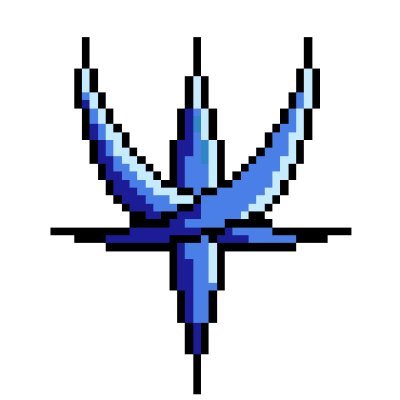結果
| 問題 | No.274 The Wall |
| コンテスト | |
| ユーザー |
 pazzle1230 pazzle1230
|
| 提出日時 | 2018-02-28 02:39:16 |
| 言語 | C++14 (gcc 15.2.0 + boost 1.89.0) |
| 結果 |
AC
|
| 実行時間 | 840 ms / 2,000 ms |
| コード長 | 3,509 bytes |
| 記録 | |
| コンパイル時間 | 2,350 ms |
| コンパイル使用メモリ | 184,428 KB |
| 実行使用メモリ | 248,064 KB |
| 最終ジャッジ日時 | 2025-03-17 19:01:22 |
| 合計ジャッジ時間 | 5,276 ms |
|
ジャッジサーバーID (参考情報) |
judge5 / judge2 |
(要ログイン)
| ファイルパターン | 結果 |
|---|---|
| sample | AC * 4 |
| other | AC * 23 |
ソースコード
#include <bits/stdc++.h>
using namespace std;
#define INF_LL (int64)1e18
#define INF (int32)1e9
#define REP(i, n) for(int i = 0;i < (n);i++)
#define FOR(i, a, b) for(int i = (a);i < (b);i++)
#define all(x) x.begin(),x.end()
using int32 = int_fast32_t;
using uint32 = uint_fast32_t;
using int64 = int_fast64_t;
using uint64 = uint_fast64_t;
using PII = pair<int32, int32>;
using PLL = pair<int64, int64>;
#define fs first
#define sc second
const double eps = 1e-10;
template<typename A, typename B>inline void chmin(A &a, B b){if(a > b) a = b;}
template<typename A, typename B>inline void chmax(A &a, B b){if(a < b) a = b;}
class SCC{
private:
vector<vector<int> > gg, rg;
vector<int> order, comp;
vector<bool> used;
vector<vector<int> > ng, vs;
int n, nn;
public:
SCC(){}
SCC(int v) : gg(v), rg(v), comp(v, -1), used(v, 0), n(v){}
void add_edge(int x, int y){
gg[x].push_back(y);
rg[y].push_back(x);
}
int operator[](int k){
return comp[k];
}
void dfs(int v){
used[v] = true;
REP(i, gg[v].size()){
if(!used[gg[v][i]]) dfs(gg[v][i]);
}
order.push_back(v);
}
void rdfs(int v, int k){
used[v] = true;
comp[v] = k;
REP(i, rg[v].size()){
if(!used[rg[v][i]]) rdfs(rg[v][i], k);
}
}
int build(){
REP(i, n){
if(!used[i]) dfs(i);
}
fill(all(used), 0);
int k = 0;
for(int i = order.size()-1;i >= 0;i--){
if(!used[order[i]]) rdfs(order[i], k++);
}
nn = k;
//---------それぞれの強連結成分に含まれる頂点の番号----------
vs.resize(k, vector<int>());
REP(i, n)
vs[comp[i]].push_back(i);
//-----------------------------------------------------------
//---------強連結成分をまとめた後のNew Graph!----------------
ng.resize(k, vector<int>());
REP(i, n){
REP(j, gg[i].size()){
if(comp[i] != comp[gg[i][j]])
ng[comp[i]].push_back(comp[gg[i][j]]);
}
}
REP(i, nn){
sort(all(ng[i]));
ng[i].erase(unique(all(ng[i])), ng[i].end());
}
//------------------------------------------------------------
return k;
}
int size(){
return nn;
}
vector<vector<int> > graph(){
return ng;
}
vector<int> vertices(int v){
return vs[v];
}
};
class TwoSAT{
private:
SCC scc;
int n;
vector<bool> truth;
public:
TwoSAT(){}
TwoSAT(int _n) : n(_n), scc(2*_n){}
void add_state(int a, bool truth1, int b, bool truth2){
int na = truth1 ? a+n : a, nb = truth2 ? b+n : b;
a = truth1 ? a : a+n; b = truth2 ? b : b+n;
scc.add_edge(na, b);
scc.add_edge(nb, a);
}
bool build(){
scc.build();
REP(i, n){
if(scc[i] == scc[i+n]) return false;
if(scc[i] > scc[i+n]) truth.push_back(true);
else truth.push_back(false);
}
return true;
}
vector<bool> result(){
return truth;
}
bool operator[](int k){
return truth[k];
}
};
int main(void){
cin.tie(0);
ios::sync_with_stdio(false);
int32 N, M;
cin >> N >> M;
vector<PII> wall;
wall.resize(N);
REP(i, N)
cin >> wall[i].fs >> wall[i].sc;
TwoSAT scc(N);
REP(i, N){
REP(j, N){
if(i == j) continue;
PII rw1(M-wall[i].sc-1, M-wall[i].fs-1), rw2(M-wall[j].sc-1, M-wall[j].fs-1);
if(!(wall[j].sc < wall[i].fs) && !(wall[i].sc < wall[j].fs)) scc.add_state(i, 0, j, 0);
if(!(wall[j].sc < rw1.fs) && !(rw1.sc < wall[j].fs)) scc.add_state(i, 1, j, 0);
if(!(rw2.sc < wall[i].fs) && !(wall[i].sc < rw2.fs)) scc.add_state(i, 0, j, 1);
if(!(rw2.sc < rw1.fs) && !(rw1.sc < rw2.sc)) scc.add_state(i, 1, j, 1);
}
}
if(scc.build())
cout << "YES" << endl;
else
cout << "NO" << endl;
}
